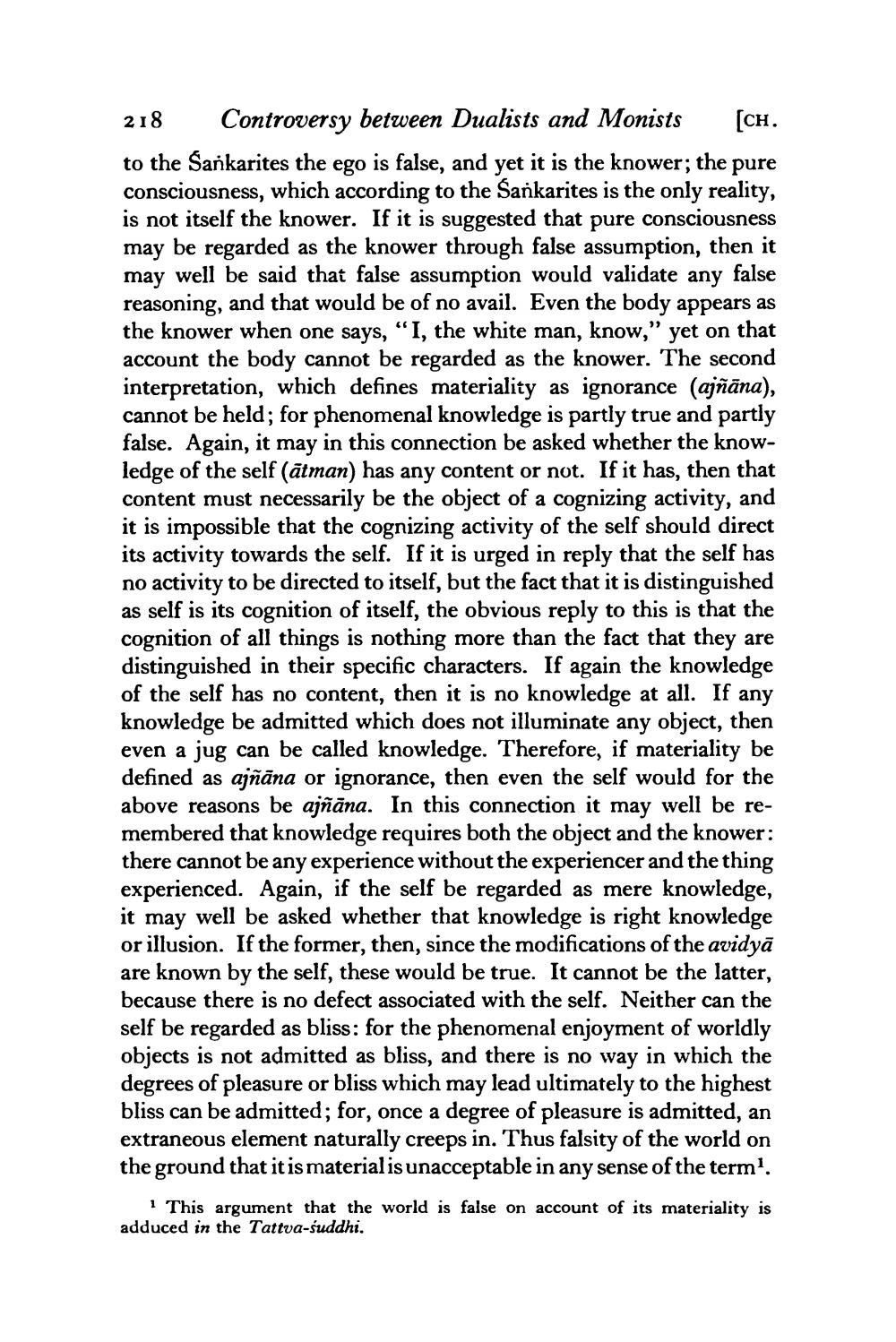________________
218 Controversy between Dualists and Monists [CH. to the Sankarites the ego is false, and yet it is the knower; the pure consciousness, which according to the Sankarites is the only reality, is not itself the knower. If it is suggested that pure consciousness may be regarded as the knower through false assumption, then it may well be said that false assumption would validate any false reasoning, and that would be of no avail. Even the body appears as the knower when one says, “I, the white man, know," yet on that account the body cannot be regarded as the knower. The second interpretation, which defines materiality as ignorance (ajñāna), cannot be held; for phenomenal knowledge is partly true and partly false. Again, it may in this connection be asked whether the knowledge of the self (ātman) has any content or not. If it has, then that content must necessarily be the object of a cognizing activity, and it is impossible that the cognizing activity of the self should direct its activity towards the self. If it is urged in reply that the self has no activity to be directed to itself, but the fact that it is distinguished as self is its cognition of itself, the obvious reply to this is that the cognition of all things is nothing more than the fact that they are distinguished in their specific characters. If again the knowledge of the self has no content, then it is no knowledge at all. If any knowledge be admitted which does not illuminate any object, then even a jug can be called knowledge. Therefore, if materiality be defined as ajñāna or ignorance, then even the self would for the above reasons be ajñāna. In this connection it may well be remembered that knowledge requires both the object and the knower: there cannot be any experience without the experiencer and the thing experienced. Again, if the self be regarded as mere knowledge, it may well be asked whether that knowledge is right knowledge or illusion. If the former, then, since the modifications of the avidyā are known by the self, these would be true. It cannot be the latter, because there is no defect associated with the self. Neither can the self be regarded as bliss: for the phenomenal enjoyment of worldly objects is not admitted as bliss, and there is no way in which the degrees of pleasure or bliss which may lead ultimately to the highest bliss can be admitted; for, once a degree of pleasure is admitted, an extraneous element naturally creeps in. Thus falsity of the world on the ground that it is materialis unacceptable in any sense of the term'.
1 This argument that the world is false on account of its materiality is adduced in the Tattva-śuddhi.




